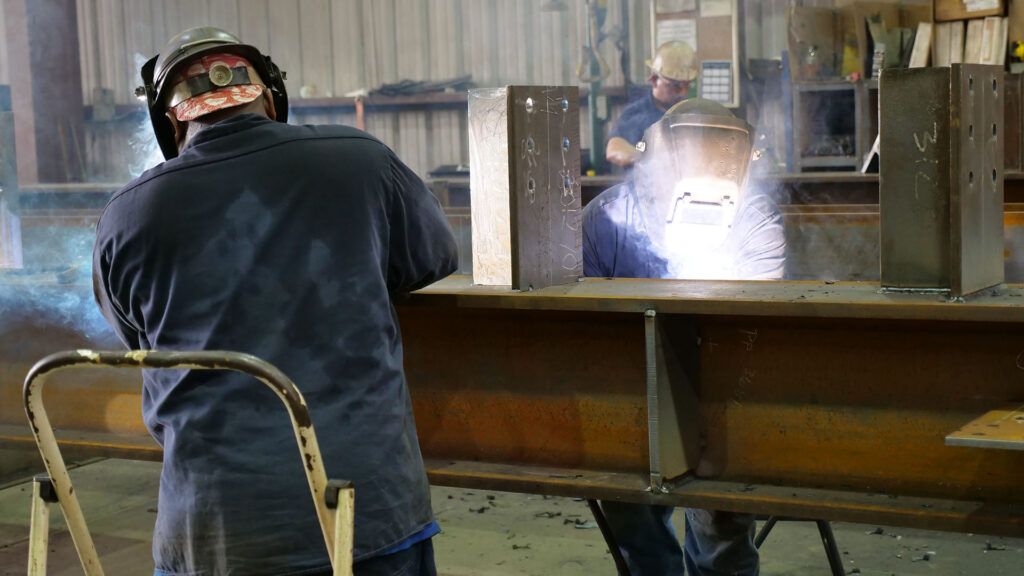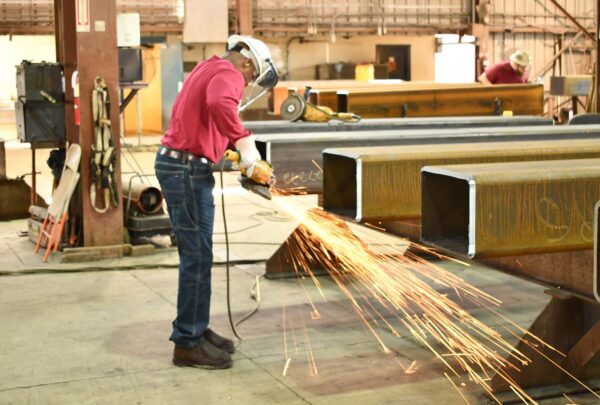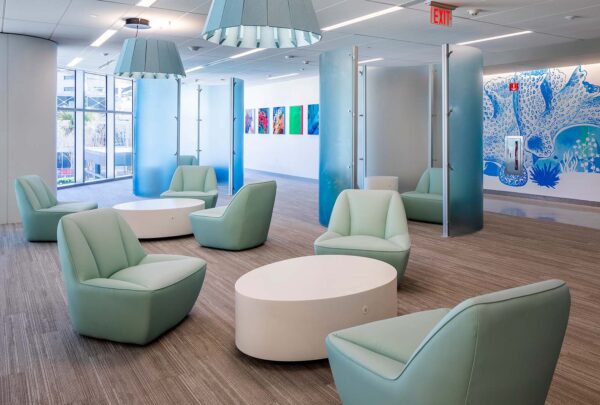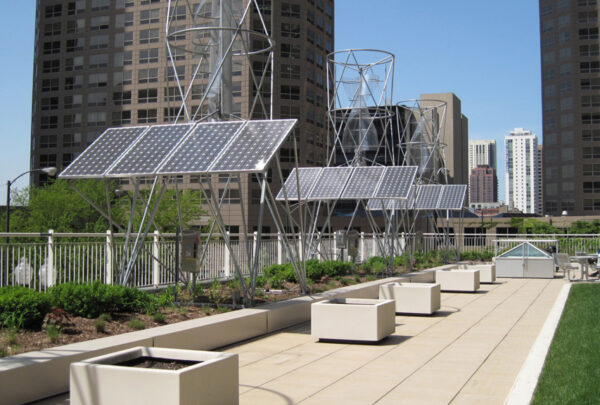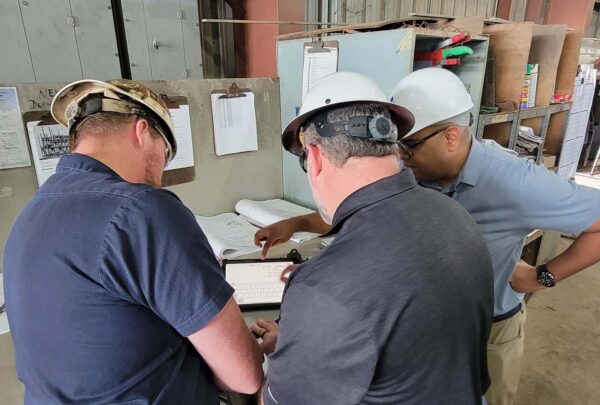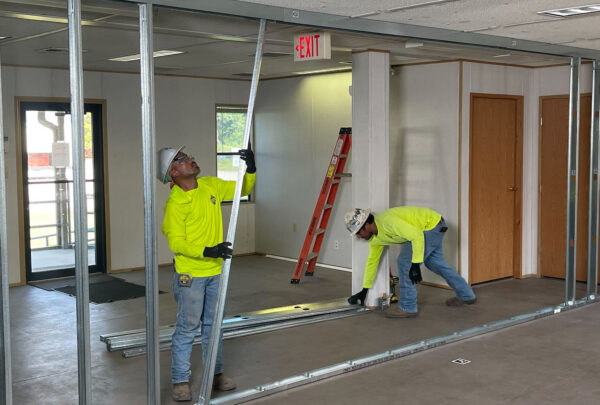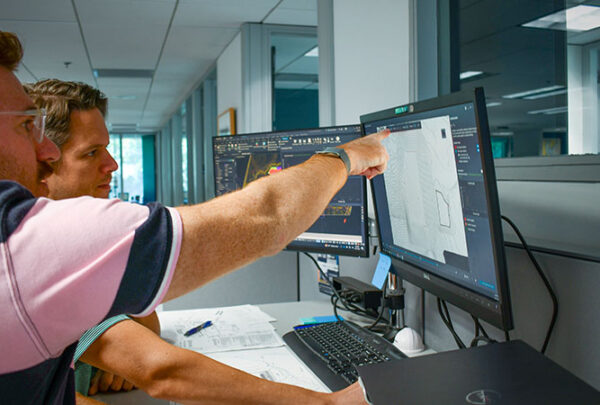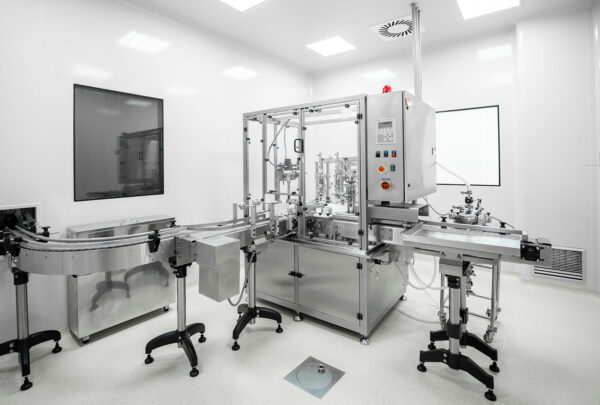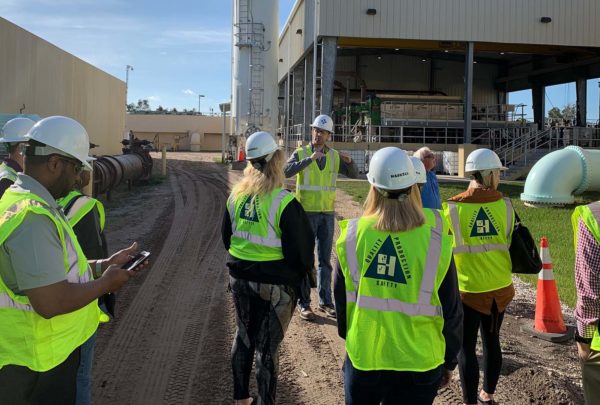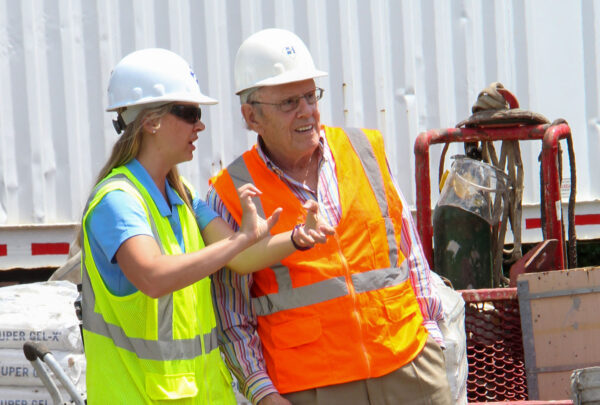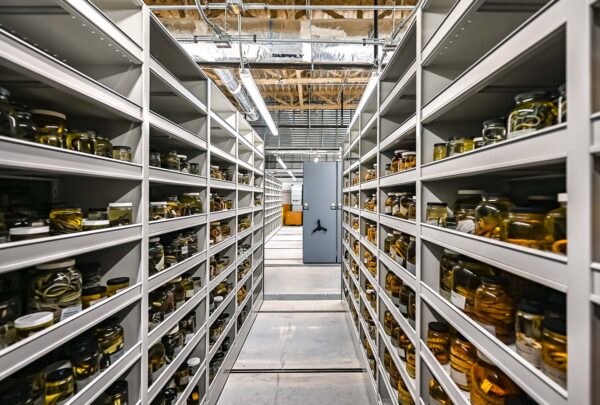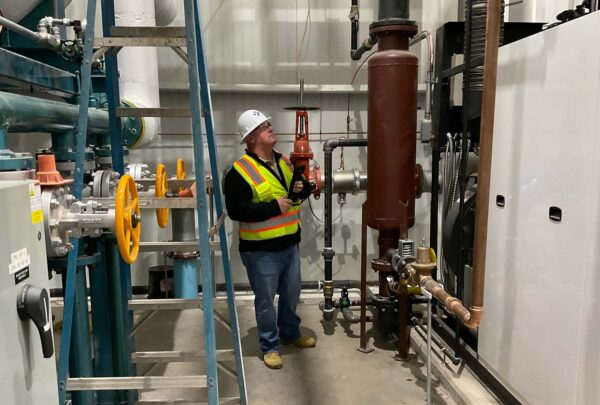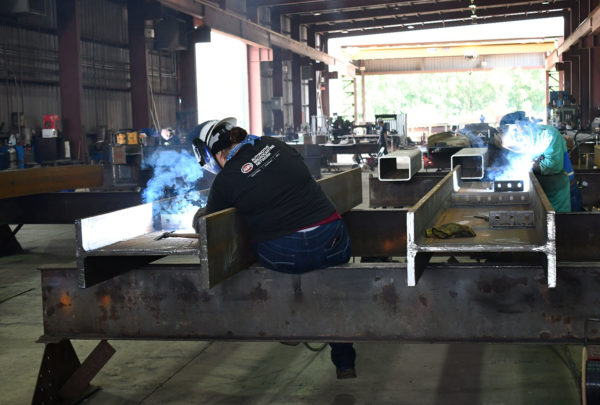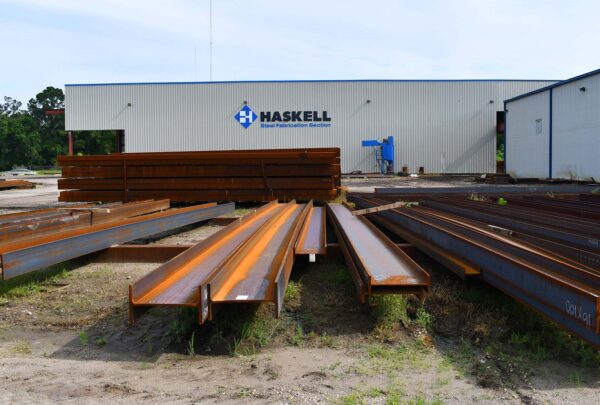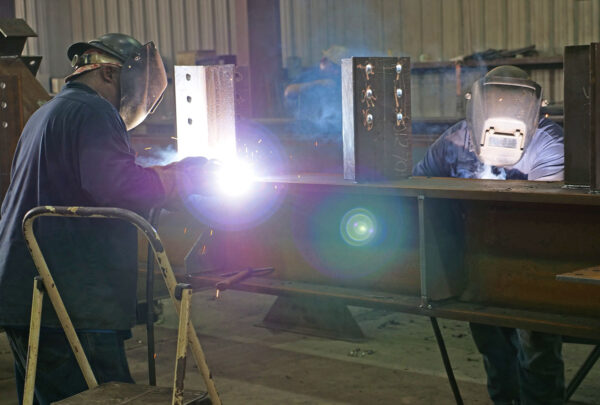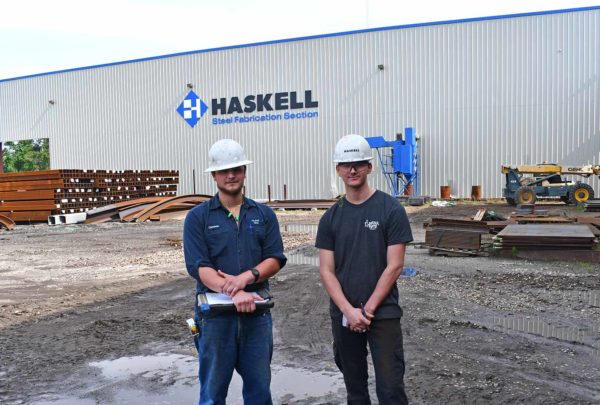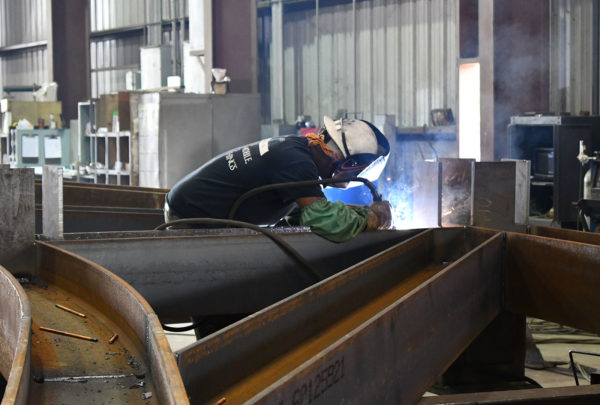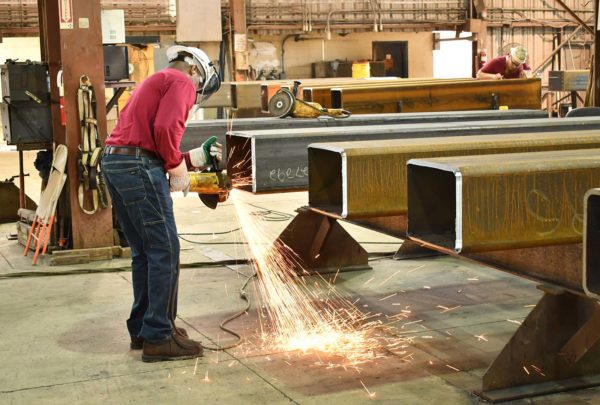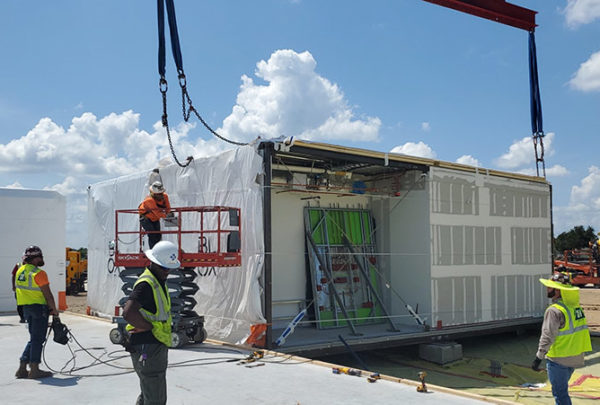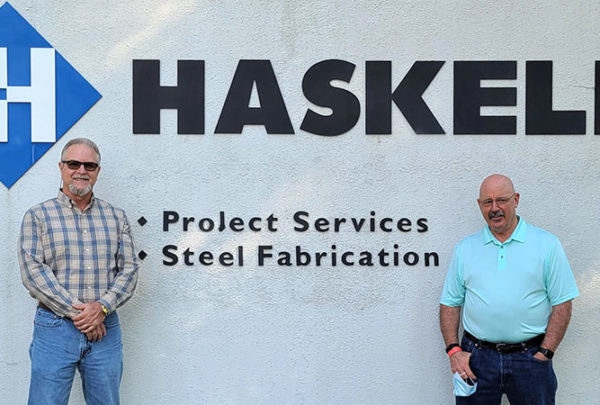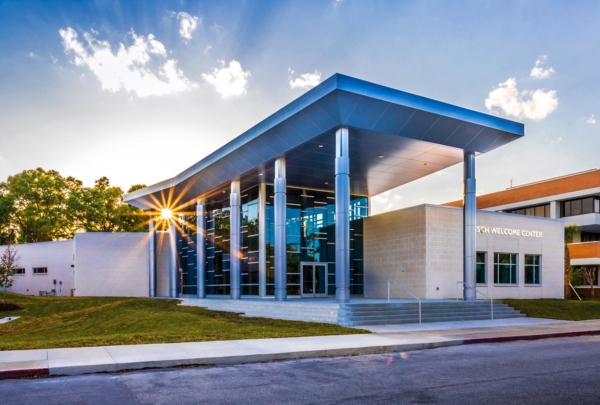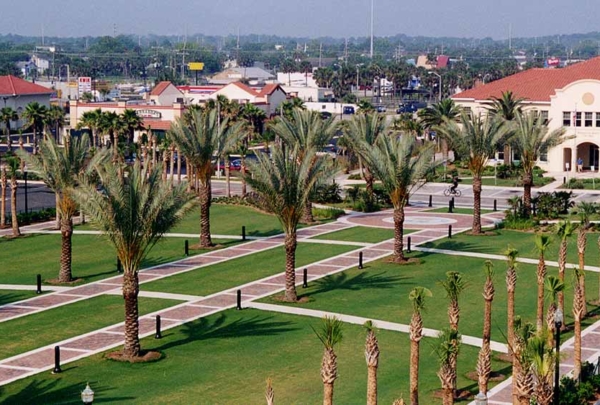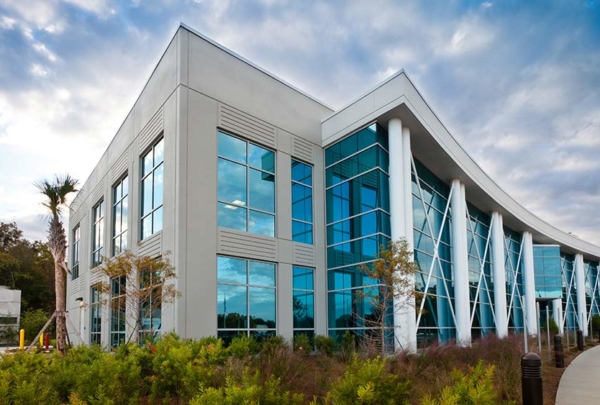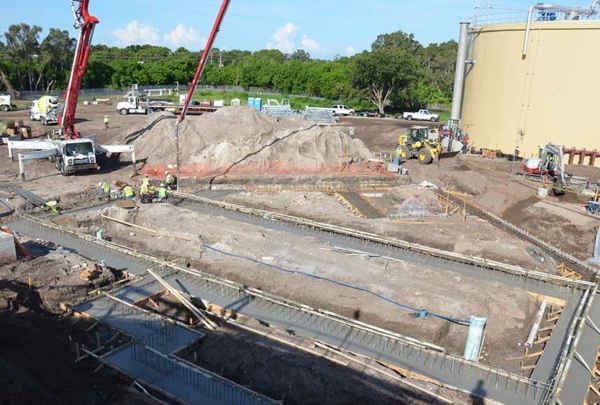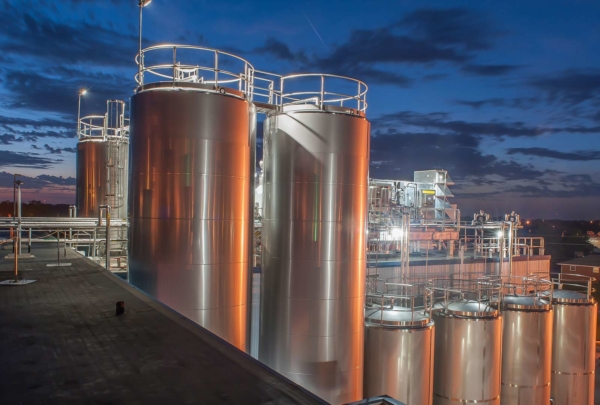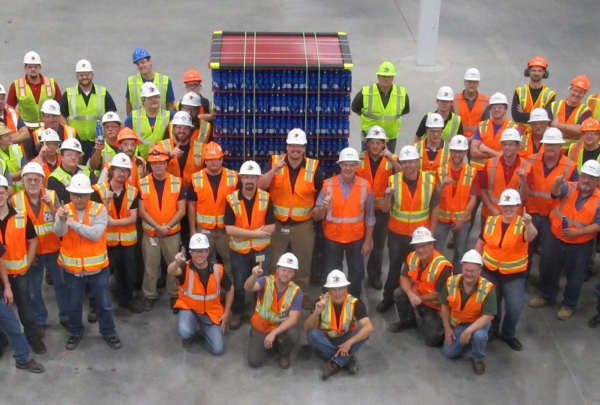Steel, the backbone of numerous significant construction projects, not only creates the framework for large industrial facilities but also contributes significantly to sustainability. It's a lesser-known fact that steel is the most recycled material on the planet, making it a key player in the global efforts towards a greener future.
“There’s a false conception surrounding steel construction that it’s not a clean process,” said Touan Plante, Haskell Director of Steel. “You walk into a steel mill and see smoke and melting, but really, that’s just the recycling process. The furnaces now in use are mostly electric and use high temperatures to melt the steel. It’s a lot cleaner than most people think it is.”
Haskell Steel is the company’s owned-and-operated steel fabrication operation in Jacksonville, Florida. With 55 employees, more than 90,000 square feet of production capacity and state-of-the-art technology, it fabricated more than 5,500 tons of steel for Haskell projects and sales to third parties in 2023.
The process of fabricating steel starts at the planning table. Haskell’s integrated design-build methodology helps reduce unnecessary steel use through the initial design and by utilizing existing inventory in the steel yard. Steel fabrication has a seat at the table with all other disciplines working on each project, which adds insight into the design phase and reduces production times.
“At Haskell Steel, we keep an inventory of every piece of steel we have in stock,” Plante said. “During the production process, the first step is to go through the existing inventory and see what can be used. So, whether it goes to the mill or stays in our inventory, it gets reused.”
The fabrication process consists of cutting, bending, welding and machining raw steel into custom pieces for the intended project. Part of this process produces spare pieces, as the steel is measured and cut precisely to match the design.
“Anything that is scrap goes into a bin in our shop, and about once a month, we take the bin to get recycled,” he said. “There are many different things it can become, but typically, it goes back to the steel mill and is reformed for them to use again.”
Haskell also works to reduce the amount of steel placed in the recycling bin. One way this is accomplished is by standardizing the lengths of steel used in builds based on the materials purchased. Bollards, the steel pipes placed in front of businesses, walkways or around traffic, are an example.
“The structural engineering team worked with the fabrication and architecture teams to standardize the bollards used for our buildings based on the length of raw steel,” said Bobbie Wood, Chief Structural Engineer, Private Facilities. “By making them one set length, we no longer have leftover steel when they are cut.”
Steel is also the leading construction material in strength, durability and elasticity and can carry a more significant load with less material. Co-products used in the steel production process, such as slag, water, or energy, can be reused or recycled in future productions.
Haskell is committed to its role as a leader in environmental sustainability in the AEC industry. We view our role in furthering sustainability in three dimensions: leading by example, through service and through active support of community organizations. Contact us to learn more and to discuss your next sustainable project.
